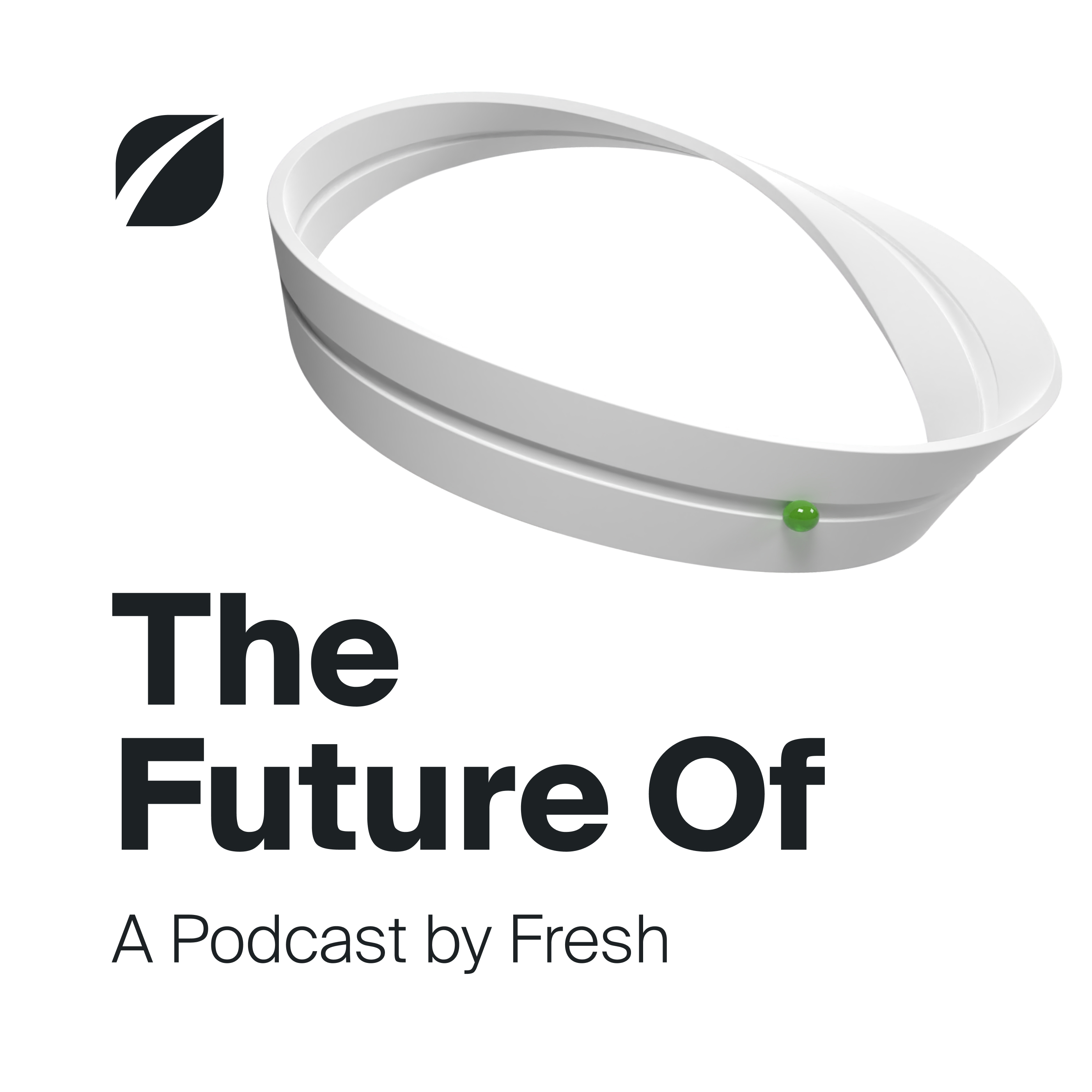The Future Of Generative AI
April 18, 2023

In this episode of The Future Of, Johnny Rodriguez, Director of Strategic Innovation at Fresh Consulting, Elisha Terada, Technical Innovation Director at Fresh Consulting, and Linus Ekenstam, Co-founder and Designer of Sensive, join Jeff Dance to discuss the future of generative AI. They explore how generative AI differs from other types, some of its most promising applications today, and how generative AI will look in ten to twenty years.
Johnny Rodriguez, Director of Strategic Innovation at Fresh Consulting, Elisha Terada, Technical Innovation Director at Fresh Consulting, and Linus Ekenstam, Co-founder and Designer of Sensive, join Jeff Dance to discuss the future of generative AI. They explore how generative AI differs from other types, some of its most promising applications today, and how generative AI will look in ten to twenty years.
They Cover:
- [00:10:55] - When AI and machine learning started to become popular, it was more about looking at historical data and trying to predict something new about the new unseen data. Generative AI is a bit different as it could generate text, video, or audio content. Instead of just predicting, it can't create new data and content that could be hard to distinguish from other humans.
- [00:17:51] - Open AI is one of the most well-known companies in the generative AI space. And other big tech companies like Microsoft, Adobe, and Google are implementing their own versions, or they've accepted the technology and started to build with it themselves. For every major technology company, you can see elements of generative AI. For example, DALL-E, Stable Diffusion, and Midjourney are shaking up the design and art space.
- [00:26:04] - Stanford has said that "these new forms of generative AI have the capacity to change how we think, create, teach, and learn. They may also change our perspective on what is important to learn." There is an unlimited number of generative AI use cases across a wide variety of industries, helping them go from zero to one faster.
- [00:39:21] - Generative AI still faces many limitations, such as the high cost of use and turning it into a service, the number of queries you can run, technical constraints, and unreliable or biased outputs. But the industry evolves fast, and most of these limitations could be overcome shortly.
- [00:48:20] - Change itself is exponential, and most people have no idea what it means. Even for someone in this field, it's hard to understand where things are headed and what the future will look like. So looking ten years into the future, at this point, it's almost impossible to predict the magnitude of change. However, we can be sure that change will happen, generative AI will evolve, and we have to keep pace with this shift.
- [00:56:41] - Generative AI is a technology that can create and disseminate more value among people, leading to an overall increase in the economy. While it may displace or transform some jobs, it will also create new opportunities. In the realm of software engineering, the gap between beginners and experts may widen due to the transformative power of generative AI. Additionally, smart assistants are poised to become integrated more deeply into our lives and will personalize their services to better assist us.
Full transcript: https://www.freshconsulting.com/insights/podcasts/the-future-of-generative-ai/
Subscribe here:
Subscribe here:
- Apple: https://apple.co/3t0hujs
- Spotify: https://spoti.fi/3BLB3ja
- bCast: https://bit.ly/38yNx3l
- RSS: https://bit.ly/3uaCPIB
- Instructions on how to rate and review The Future Of can be found here
Episode resources:
- Johnny Rodriguez on LinkedIn: https://www.linkedin.com/in/tryjohnny/
- Elisha Terada on LinkedIn: https://www.linkedin.com/in/elishaterada/
- Linus Ekenstam on LinkedIn: https://www.linkedin.com/in/linusekenstam/
- Fresh Consulting Website: https://www.freshconsulting.com/
- Brancher.ai: https://www.brancher.ai/
- Sensive Website: https://sensive.xyz/
About the Show
"The Future Of" is a podcast by Fresh Consulting & hosted by Jeff Dance, where we discuss and learn about the future of different industries, markets, and technology verticals. Together we'll chat with leaders and experts in the field and discuss how we can shape the future human experience.
Previous guests include: Gurdeep Pall of Microsoft, Carolyn Belle of Astroscale, Kane Simms of VUX World, Rogger Kibbe of Samsung Research America, Rob Tiffany of Sustainable Logix, Katrina Stevens of Tech Interactive,
Check out our 3 most downloaded episodes:
The Future of the Metaverse
The Future of Construction
The Future of Generative AI